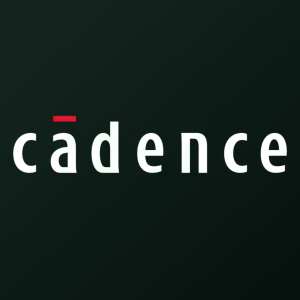Cadence Expands Tensilica IP Portfolio with New HiFi and Vision DSPs for Pervasive Intelligence and Edge AI Inference
- Cadence Design Systems introduces four new DSPs based on the Tensilica Xtensa LX8 platform. The new HiFi and Vision DSPs offer enhanced performance and energy efficiency for audio/voice, imaging, AI, and sensor applications. They feature improvements in floating-point acceleration, hardware/software co-design, 8-bit operations, and cache size.
- None.
Insights
Analyzing...
AI enhancements and Tensilica Xtensa LX8 platform capabilities deliver significant performance improvements with industry-best energy efficiency
“With lengthy SoC design cycles and rapidly changing AI algorithms, our SoC customers require the utmost flexibility. On-device and edge AI systems feature numerous diverse sensors, so any AI inference solution must be adaptable to the end application requirements,” said David Glasco, vice president of research and development for Tensilica IP at Cadence. “Designing with a system-level perspective is crucial, and these SoCs must be energy-efficient, flexible and future proof to accommodate new neural networks. Cadence continues to make significant investments in our Tensilica product line, and our latest HiFi and Vision DSPs reflect that commitment.”
Xtensa LX8 Platform and Common Benefits
The new HiFi and Vision DSPs benefit from the inherent advantages of the Xtensa LX8 platform, including native AMBA® AXI support for lower latency and L2 cache for increased system performance. Branch prediction enables a
HiFi 1s and HiFi 5s DSPs
The new Tensilica HiFi DSPs add more capabilities for lightweight imaging and AI to meet market demands—enabling them to serve as additional compute resources beyond just audio, either as a standalone solution or complementing the Vision DSPs and Neo NPUs. Individually and collectively, the following features significantly improve out-of-box performance—dramatically reducing time to market (TTM) for OEMs and software developers:
- Double-precision floating-point acceleration provides up to 30X better out-of-box performance of popular codecs, enabling easier handling for computation requiring expanded dynamic range and precision
- Hardware/software co-design enhances auto-vectorization, greatly reducing the need for hand-optimized code and providing source code compatibility across HiFi DSPs
- New 8-bit operations in the HiFi 1s DSP boost imaging and AI performance by up to 2X at the kernel level, compared to the HiFi 1 DSP
-
L2 cache increases system performance by up to
50%
More details on the new HiFi DSPs can be found at www.cadence.com/go/HiFi1s and www.cadence.com/go/HiFi5s.
Vision 110 and 130 DSPs
The 128-bit Tensilica Vision 110 DSP and 512-bit Vision 130 DSP offer numerous performance improvements to address growing sensor and AI workloads, offloading from the CPU or GPU while providing industry-best energy efficiency. Both DSPs deliver AI performance enhancements that enable up to 3X improvement for certain AI workloads and up to 5X improvement on specific kernels. Additional benefits include:
- Up to 20 percent higher frequency and up to 2X improvement for 16-bit, 32-bit and 64-bit floating-point performance
- Better system performance through iDMA enhancements previously available only on the flagship high-performance Vision DSPs
- Up to 3X improvements in fast Fourier transform (FFT) for radar applications
- Reduction in code memory footprint due to code size improvement
- Common SIMD and VLIW architecture and instruction set with Vision DSP predecessors ensure easy software migration
More details on the new Vision DSPs can be found at www.cadence.com/go/Vision110 and www.cadence.com/go/Vision130.
Supporting Quotes:
“Hailo is developing powerful AI-centric vision processors serving the growing edge AI market. ln our recently announced Hailo-15 device targeting the IP camera market, we've chosen to integrate Cadence’s Tensilica DSP among the computational subsystems complementary to our proprietary neural engine,” said Guy Kaminitz, VP VLSI at Hailo. “Cadence’s Tensilica DSPs offer the performance and energy efficiency as well as the flexibility required for such heterogeneous devices.”
“Kneron continues to develop market-leading SoCs for numerous on-device and edge AI applications, and selecting an efficient processor to complement our high-performance NPU is crucial,” said Albert Liu, CEO of Kneron. “We continue to use Cadence Tensilica Vision DSPs, which provide the computational throughput and flexibility needed to keep up with today’s complex AI workload requirements. Additionally, Tensilica's extensive framework of software libraries and strong partner ecosystem enable rapid deployment for fast time to market.”
Availability
Tensilica HiFi and Vision DSPs support Cadence’s Intelligent System Design™ strategy, enabling SoC design excellence. The HiFi 3z DSP, HiFi 4 DSP, ConnX 110 DSP, ConnX 120 DSP, MathX 110 DSP and MathX 130 DSP have also been upgraded to the Xtensa LX8 platform.
The Vision 110 DSP and Vision 130 DSP, as well as the upgraded ConnX 110 DSP, ConnX 120 DSP, MathX 110 DSP and MathX 130 DSP, are available now. The new HiFi DSPs are expected to be in general availability in December 2023.
About Cadence
Cadence is a pivotal leader in electronic design, building upon more than 30 years of computational software expertise. The company applies its underlying Intelligent System Design strategy to deliver software, hardware and IP that turn design concepts into reality. Cadence customers are the world’s most innovative companies, delivering extraordinary electronic products from chips to boards to systems for the most dynamic market applications, including consumer, hyperscale computing, 5G communications, automotive, mobile, aerospace, industrial and healthcare. For nine years in a row, Fortune magazine has named Cadence one of the 100 Best Companies to Work For. Learn more at cadence.com.
© 2023 Cadence Design Systems, Inc. All rights reserved worldwide. Cadence, the Cadence logo and the other Cadence marks found at www.cadence.com/go/trademarks are trademarks or registered trademarks of Cadence Design Systems, Inc. Arm and AMBA are registered trademarks of Arm Limited (or its subsidiaries) in the US and/or elsewhere. All other trademarks are the property of their respective owners.
Category: Featured
View source version on businesswire.com: https://www.businesswire.com/news/home/20231024512807/en/
Cadence Newsroom
408-944-7039
newsroom@cadence.com
Source: Cadence Design Systems, Inc.







